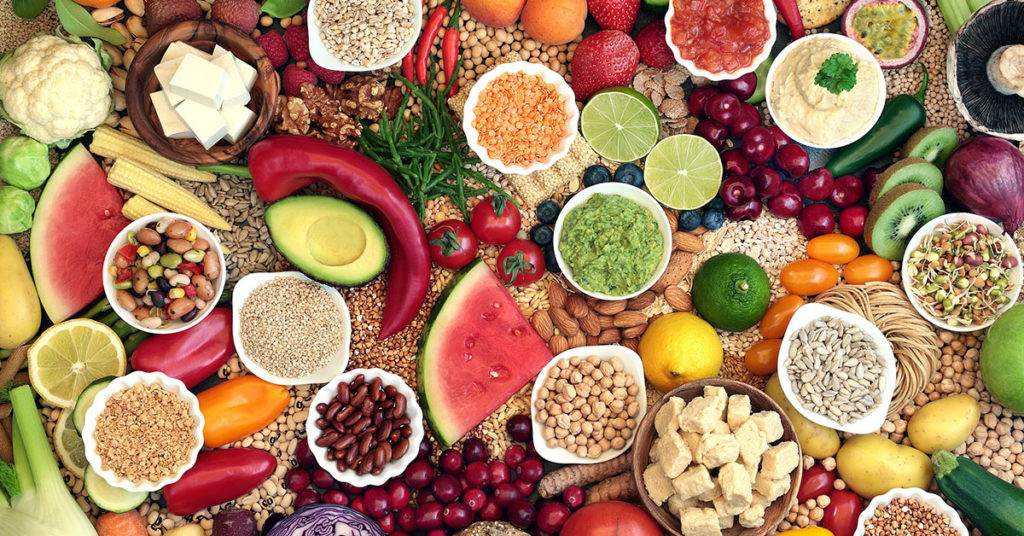
The pandemic hit us unexpectedly, and it hit us hard. Dealing with the ‘new normal’ and ‘social distancing’ has been tough for everyone. There’s been a disruption in schedules, and a sense of routine is lost. There are also feelings of fear and angst we haven’t experienced before. COVID-19 is all new emotional territory.
With entire families spending most of their time at home, the stress and anxiety of our newfound “togetherness” may have thrown your plans of eating healthy completely off track. It is easy to grab a cookie, a bag of chips, or a soda as comfort food; so it’s no surprise then, that the pandemic has led to weight gain for many of us.
Terms like ‘COVID +15’ and ‘Quarantine Curves’ have become new vocabulary words to describe the pounds gained during the shutdown. The only businesses that are still accessible are drive-thru restaurants and food delivery. That convenience has not been lost on us.
John Morton, MD, MPH, MHA, medical director of bariatric surgery at Yale New Haven Health System, says he has seen patients in telehealth appointments who have gained five, ten, and even thirty pounds. (Katella, Kathy, 2020)
What are Some of the Causes Behind Weight Gain?
Stress: Stress causes metabolic changes in our body and directly impacts weight gain. When we feel stressed, our body senses it. It thinks it needs energy for combat or to run away, and it doesn’t let go of the calories. We’re also drinking much more alcohol to cope. It’s a downward health spiral few of us can afford to do long-term.
Disruption of schedules: Adults have been finding it challenging to deal with extended work-from-home situations. Along with managing the kids, keeping up with their online classes and canceled vacations have added to anxiety levels.
Boredom and loneliness: Staying indoors during such uncertain times causes stress levels to increase. This stress leads to a craving for high-fat, sugary, processed foods. Apart from choosing unhealthy food, there is also an increase in appetite, which eventually leads to weight gain.
Tips for Refocusing on Healthy Eating:
Make a meal plan: Getting a daily meal schedule in place brings a sense of predictability for everyone at home. It’s best to have a weekly program in place, so you don’t have to decide what to cook for each meal. Planning your meals also allows you to add variety in terms of ingredients and cooking styles.
Healthy food choices: Instead of choosing high-salt, high-sugar, processed food, choose healthy alternatives. Buy fresh fruits and vegetables, whole grains, healthy fats, and lean proteins. If there are no unhealthy options in the pantry, you won’t eat it.
If you choose to buy some packaged, frozen, or canned items, select the ones without any cream-based sauce. Dried fruits can be an excellent snacking option, but remember they have more sugar, nutrients, and calories than fresh fruit.
Choose immunity-boosting foods: Some of the foods that can help boost immunity are the ones that contain vitamins A, C, D, and zinc.
Here are some options:
- Vitamin A: Carrots, tuna, sweet potatoes, spinach, mangoes.
- Vitamin C: Citrus fruits like oranges, strawberries, red bell peppers, broccoli.
- Vitamin D: Fortified milk, salmon, egg yolks. One of the best sources of Vitamin D is sunshine. Spending 10 to 20 minutes a day in the sun between 10:00 am and 3:00 pm at least two times a week can meet your vitamin D needs.
- Zinc: Lean meats, oysters, cashews, seeds, nuts, whole-grain products.
- Apart from this, foods rich in magnesium like seeds, nuts, and whole grains can help keep the stress away and make you feel calm.
Start cooking: If you have been interested in cooking but haven’t had the time to experience it, there is no better time to start. You can make bigger batches of meals than needed and freeze the extras for later. Healthy meals take a little more thought and effort, but it’s worth it to give your body what it needs without stressing yourself out. (WebMD, 2020)
Watch how you eat: Apart from watching what you eat, it’s equally important to watch how you eat. Eat mindfully and enjoy your meal. Be aware of how much you’re eating and the pace at which you’re eating. Try portion control. By drinking a glass of water 15 minutes before a meal, you can end up eating less.
Choose comfort foods carefully: While it’s essential to eat right, it doesn’t mean you need to get on the path of self-deprivation. Eating feel-good foods like chocolate, cookies, or an ice-cream is okay in moderation.
No matter your weight goals, now is a great time to reset your priorities and focus on adopting a healthy way of life. Apart from eating right, the key to good health includes regular exercise and getting a good night’s sleep. Only when your lifestyle is a combination of food, activity, and sleep will you stay on the path to being healthy. There will be an end to COVID and we don’t want it to be a reason to give up on healthy eating. You can do this!
Works Cited
Katella, Kathy. “Quarantine 15? What to Do About Weight Gain During the Pandemic.” N.p., 01 July 2020. Web. 17 Aug. 2020. https://www.yalemedicine.org/stories/quarantine-15-weight-gain-pandemic/
Smith, Michael W. “Coronavirus Tips: 4 Ways to Eat Healthy During a Pandemic.” WebMD. WebMD, 24 Mar. 2020. Web. 17 Aug. 2020. https://www.webmd.com/lung/healthy-cooking-pantry#1
